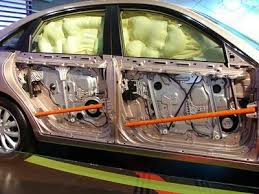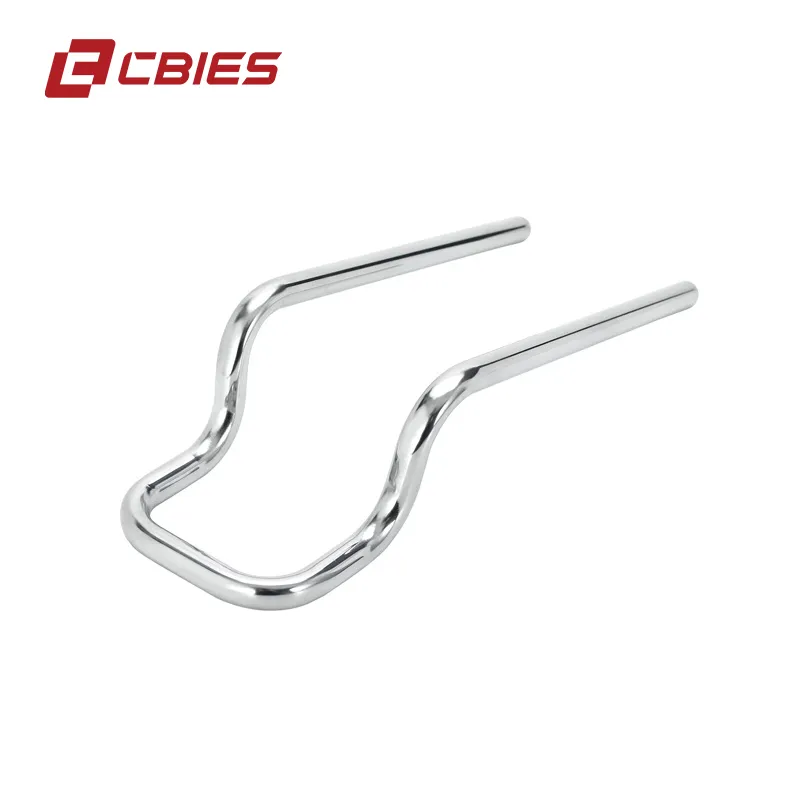- Overview of ERW precision steel tube manufacturing
- Technical advantages in dimensional control
- Performance data against seamless alternatives
- Manufacturer capability comparison
- Customization approaches for specific applications
- Industrial implementation case studies
- Future developments in tube production

(erw precision steel tubes)
Understanding ERW Precision Steel Tube Manufacturing
Electric Resistance Welded (ERW) precision steel tubes represent significant technological evolution in metal forming. Manufacturers feed flat steel coils through forming rollers that gradually shape the material into a cylindrical profile before applying high-frequency electrical current to bond the seam. This method achieves dimensional tolerances within ±0.10mm for diameters up to 300mm, substantially tighter than traditional methods.
Production occurs through continuous rolling mills operating at speeds reaching 120 meters per minute. Advanced facilities incorporate automated optical measurement systems that perform real-time dimensional verification at 50 microsecond intervals. This ensures consistent concentricity and straightness, with ovality ratios maintained below 0.5% even for thin-walled applications down to 1.2mm thickness.
Technological Advantages in Manufacturing
ERW precision steel tubes deliver exceptional dimensional stability through several manufacturing innovations. First, cold-drawn sizing calibrates diameters after welding with repeatable precision at ±0.05mm. Second, controlled atmosphere annealing creates homogeneous microstructures that minimize internal stresses. Surface finishes achieve between 0.4-1.6μm Ra through proprietary polishing techniques unavailable with conventional methods.
Modern mills incorporate laser-guided welding alignment systems ensuring seam straightness within 0.1° deviation. The welding process uses precisely modulated currents between 350-450kHz which create narrow heat-affected zones below 2mm width. This preserves base material strength while preventing metallurgical inconsistencies common in fusion methods.
Performance Data Comparison
| Characteristic |
ERW Precision Steel Tubes |
Precision Seamless Steel Tubes |
Conventional Welded Tubes |
| Tolerance Range (ø100mm) |
±0.10mm |
±0.25mm |
±0.75mm |
| Wall Uniformity (2mm nominal) |
±0.05mm |
±0.15mm |
±0.40mm |
| Surface Roughness (Ra) |
0.4μm |
1.6μm |
3.2μm |
| Maximum Length |
36 meters |
18 meters |
24 meters |
| Production Speed |
80-120 m/min |
10-25 m/min |
40-60 m/min |
Manufacturer Capability Assessment
Leading ERW precision tube manufacturers differentiate through specialized certifications and production capacities. Top-tier European producers typically hold EN 10217 and AD2000 certifications, enabling manufacture of pressure equipment for extreme conditions. These facilities maintain separate clean rooms for medical-grade production with particulate filtration below ISO Class 7 standards.
Material selection varies significantly between manufacturers. Premium suppliers maintain in-house metallurgical labs capable of alloy modification for specific corrosion resistance. The highest capability facilities process nickel alloys up to 8% concentration and stainless grades including duplex 2205 variants. Secondary processing like orbital welding typically requires partnering with certified specialists.
Customization Solutions
Custom precision steel tubes undergo rigorous application analysis before production. For aerospace hydraulic systems, engineers specify precipitation-hardened SS17-4PH material in diameters from 4mm to 150mm. Special passivation treatments achieve corrosion resistance exceeding 1000 hours in salt spray testing per ASTM B117.
Medical equipment applications require particularly stringent solutions. Implantable device manufacturers demand ERW precision tubes with internal bores polished to 0.1μm Ra. Biocompatible grades like ASTM F138 undergo trace element verification, restricting cobalt below 0.10% and nickel under 0.15%. Dimensional validation requires statistical process control with Cpk≥1.67 maintained continuously.
Industrial Implementation Case Studies
Automotive fuel injection systems demonstrate material performance excellence. One German manufacturer replaced forged components with ERW precision steel tubes in high-pressure rails, achieving 1.5% tighter fuel metering accuracy while reducing component weight by 25%. The seamless substitution required only minor redesign yet decreased production costs by €3.20 per unit.
HVAC industry conversions yield significant operational benefits. After implementing precision tubes for heat exchangers, a Turkish manufacturer documented 17% thermal efficiency improvement in condensing boilers. The enhanced dimensional stability allowed reducing tube wall thickness from 1.5mm to 1.0mm without compromising pressure integrity. This modification decreased material consumption by 15 metric tons annually per production line.
Future Developments in ERW Precision Steel Tube Technology
Manufacturing enhancements currently under development promise improved precision steel tube characteristics. The most significant advancement involves automated AI-guided welding parameter adjustment. During initial trials, this innovation reduced dimensional deviation at weld seams by 65% while increasing production throughput by 8-12% without requiring hardware modifications.
Material science research focuses on proprietary ferritic stainless compositions offering similar strength to conventional alloys at reduced wall thickness. Early ERW precision tubes employing these materials demonstrate 35% greater radial collapse resistance compared to conventional counterparts. Continued refinement in online inspection techniques will further guarantee reliability for critical industrial applications demanding exceptional material consistency.

(erw precision steel tubes)
FAQS on erw precision steel tubes
Q: What are ERW precision steel tubes?
A: ERW precision steel tubes are cold-formed welded tubes made using Electric Resistance Welding (ERW) technology. They offer high dimensional accuracy and smooth surfaces, ideal for automotive, machinery, and construction applications.
Q: How do ERW precision tubes differ from seamless steel tubes?
A: ERW precision tubes are welded with a longitudinal seam, while seamless tubes are extruded without welding. ERW tubes are cost-effective for medium-pressure uses, whereas seamless tubes suit high-pressure environments.
Q: What industries use precision seamless steel tubes?
A: Precision seamless steel tubes are common in oil and gas, aerospace, and hydraulic systems due to their strength and uniformity. They handle high-pressure and high-temperature conditions effectively.
Q: What are the advantages of ERW precision tubes?
A: ERW precision tubes provide consistent wall thickness, excellent surface finish, and affordability. Their efficient production process reduces material waste compared to seamless alternatives.
Q: How to ensure quality in ERW precision steel tubes?
A: Quality is ensured through strict testing, including ultrasonic inspection, hydrostatic pressure checks, and dimensional verification. Compliance with standards like ASTM or EN guarantees performance reliability.
 Afrikaans
Afrikaans  Albanian
Albanian  Amharic
Amharic  Arabic
Arabic  Armenian
Armenian  Azerbaijani
Azerbaijani  Basque
Basque  Belarusian
Belarusian  Bengali
Bengali  Bosnian
Bosnian  Bulgarian
Bulgarian  Catalan
Catalan  Cebuano
Cebuano  Corsican
Corsican  Croatian
Croatian  Czech
Czech  Danish
Danish  Dutch
Dutch  English
English  Esperanto
Esperanto  Estonian
Estonian  Finnish
Finnish  French
French  Frisian
Frisian  Galician
Galician  Georgian
Georgian  German
German  Greek
Greek  Gujarati
Gujarati  Haitian Creole
Haitian Creole  hausa
hausa  hawaiian
hawaiian  Hebrew
Hebrew  Hindi
Hindi  Miao
Miao  Hungarian
Hungarian  Icelandic
Icelandic  igbo
igbo  Indonesian
Indonesian  irish
irish  Italian
Italian  Japanese
Japanese  Javanese
Javanese  Kannada
Kannada  kazakh
kazakh  Khmer
Khmer  Rwandese
Rwandese  Korean
Korean  Kurdish
Kurdish  Kyrgyz
Kyrgyz  Lao
Lao  Latin
Latin  Latvian
Latvian  Lithuanian
Lithuanian  Luxembourgish
Luxembourgish  Macedonian
Macedonian  Malgashi
Malgashi  Malay
Malay  Malayalam
Malayalam  Maltese
Maltese  Maori
Maori  Marathi
Marathi  Mongolian
Mongolian  Myanmar
Myanmar  Nepali
Nepali  Norwegian
Norwegian  Norwegian
Norwegian  Occitan
Occitan  Pashto
Pashto  Persian
Persian  Polish
Polish  Portuguese
Portuguese  Punjabi
Punjabi  Romanian
Romanian  Samoan
Samoan  Scottish Gaelic
Scottish Gaelic  Serbian
Serbian  Sesotho
Sesotho  Shona
Shona  Sindhi
Sindhi  Sinhala
Sinhala  Slovak
Slovak  Slovenian
Slovenian  Somali
Somali  Spanish
Spanish  Sundanese
Sundanese  Swahili
Swahili  Swedish
Swedish  Tagalog
Tagalog  Tajik
Tajik  Tamil
Tamil  Tatar
Tatar  Telugu
Telugu  Thai
Thai  Turkish
Turkish  Turkmen
Turkmen  Ukrainian
Ukrainian  Urdu
Urdu  Uighur
Uighur  Uzbek
Uzbek  Vietnamese
Vietnamese  Welsh
Welsh  Bantu
Bantu  Yiddish
Yiddish  Yoruba
Yoruba  Zulu
Zulu 













